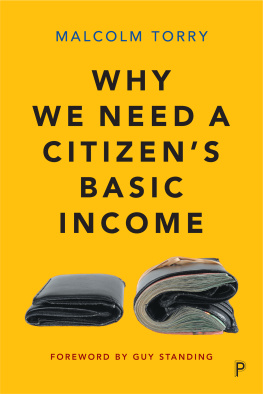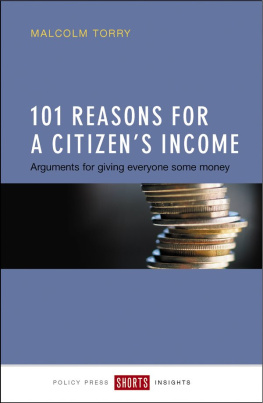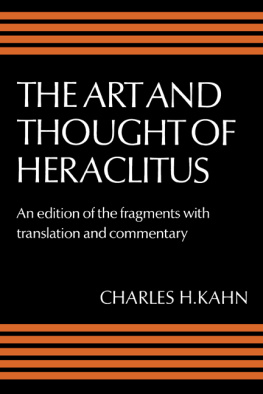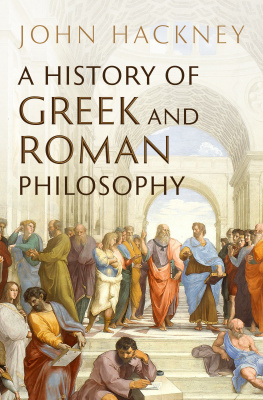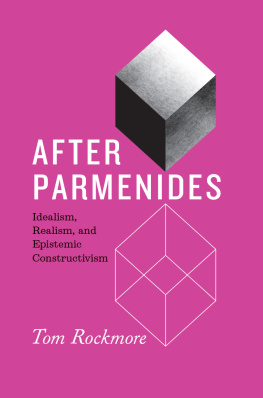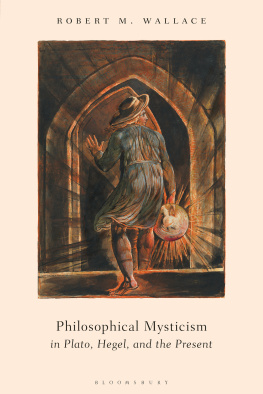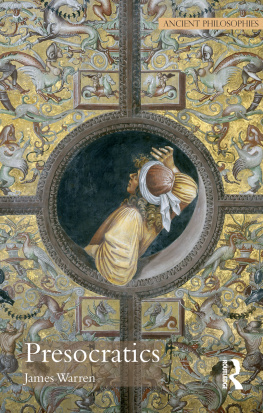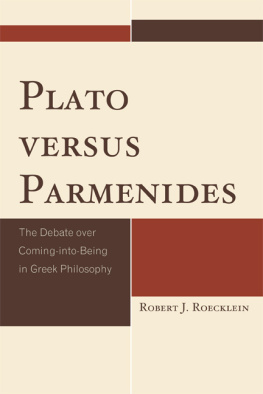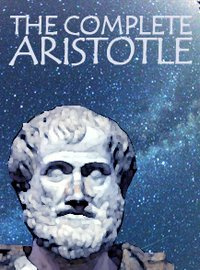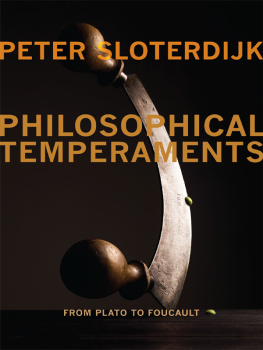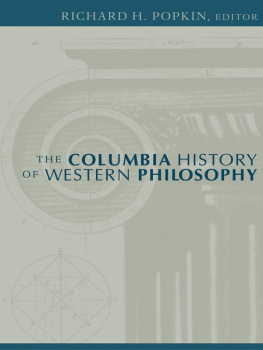Background and Acknowledgments
In 1974 I attended lectures in the philosophy of religion where I experienced Plato for the first time. The following year I studied systematic theology, and was reading works by the early theologians Justin Martyr and Origenand found myself reading about what looked very like Platos unchanging Forms of The One and The Good. It all felt rather arid. And by the mid- 1980 s that, and much else in the theology that I had learnt, felt particularly arid after two significant bereavements.
In , a Church of England commission published Faith in the City , At the same time I was attending a theological society convened by the Very Revd David Edwards, Provost of Southwark Cathedral: so I prepared for it a short paper that suggested that because our society was increasingly characterised by change and diversity, and decreasingly by sameness and the unchanging, the churchs theology needed to be expressed in terms of change and diversity. Life was busy, and further exploration of the idea had to wait until a period of sabbatical leave in 1994 . The outcome was an essay, on which both Professor Robin Gill and David Atkinson (then Canon Missioner in the Diocese of Southwark, and subsequently Archdeacon of Lewisham and Bishop of Thetford) offered valuable comment; and the essay subsequently became a series of articles which the Ven. Bill Jacob, then Archdeacon of Charing Cross and Editor of Theology , published in Theology . I am most grateful to all of those who contributed in various ways to the writing and publication of those articles.
The first article, On Completing the Apologetic Spectrum,) underlying its theology, needed to reflect that trend. The Western philosophical tradition has for two thousand years given priority to the unchanging, to the static, to rest (as opposed to movement), to the unitary, to being, and to Beingbeing itselfand Christian theology has largely followed suit. Now a different conceptual structureor perhaps, better, an additional conceptual structuremight be required if we are to express the Christian Faith in todays world: a metaphysic, or foundational conceptual framework, that prioritises change, the dynamic, movement, diversity, action, and Action: action itself.
A further article followed: Action, Patterns and Religious Pluralism. Just as a Being metaphysic has always needed some way to express the change that we experience, so an Action metaphysic will need to express the continuities that we experience. In this second article I suggested that patterns of action or actions in patterns might be a useful way to do this.
I have always been most grateful to St. Johns College, Cambridge, for the hospitality that it has extended to me over many years. Each year for forty years I have spent three nights at the college to enable me to immerse myself in the Cambridge libraries; and the college has also offered occasional longer periods of residence. On one of my annual visits, the Dean of Chapel, the Revd Andrew Macintosh, asked whether I might like to visit a former Master of the College who had moved into a care home in South London near to where I was Vicar of St. Catherines, Hatcham, at New Cross. At the age of ninety, John Boys Smith still had a lively mind, and we held an interesting discussion about process theology. He died soon after. On my next visit to Cambridge I discovered that the only theological or philosophical publication listed in the University Library catalogue under his name was a booklet that he had written in 1930 , Christian Doctrine and the Idea of Evolution .
In 2004 Keith Trivasse employed what he called Torrys model, in a somewhat too adulatory fashion, to discuss the relationship between Muhammad and the Christian Faith. asked how the conceptual framework might work as a lens through which to interpret passages from the fourth Gospel.
That last article was written in 2006 and published in 2008 , and for nearly ten years after that I hardly thought about metaphysics. Being Team Rector of the Parish of East Greenwich, Co-ordinator of the Greenwich Peninsula Chaplaincy, Director of the Citizens Income Trust, and a Visiting Senior Fellow at the London School of Economics (researching and writing on reform options for the benefits system, and on the management of religious and faith-based organisations) was quite enough. For over thirty years I have been involved in the debate about Citizens Basic Incomean unconditional income for every individualand in 2014 the debate began to demand rather a lot of my time. I was doing too much, so I retired early from the Church of Englands stipendiary ministry in order to concentrate on the research and writing that the Citizens Basic Income debate was demanding of me, and also to make time to revisit the subject-matter of the Theology articles. Those articles contained the sketchiest of surveys of the Western philosophical tradition, so to explore that tradition in more depth seemed like the obvious place to start. I was therefore pleased to be accepted as a candidate for the Archbishops Examination in Theology. I was initially intending to complete a PhD thesis, but the demands that the Citizens Basic Income debate were making on me made it necessary to rein in my ambition and to submit a thesis for the degree of Master of Philosophy, Action, change and diversity in the Western philosophical tradition: Towards an action metaphysic as a basis for Christian apologetics. In relation to the thesis I am most grateful to the board of studies and the administrators of the Archbishops Examination in Theology, Cambridge University Library, the library of St. Johns College, Cambridge, the library of Kings College, London, and Gladstones Library, for hospitality, and to my two supervisors, Professors George Newlands and Simon Oliver.
Completing two books on Citizens Basic Income ( The Palgrave International Handbook of Basic Income , and A Modern Guide to Citizens Basic Income: A multidisciplinary approach ) has required a two year delay in doing any further work on theological metaphysics, but now that those projects are complete I have been able to write a book based on the MPhil thesis. The examiners of the thesis, Professor Mike Higton and Dr David Cheetham, did not require any changes to be made before the degree was awarded, for which I was most grateful, but they did offer some useful advice as to how the thesis might be developed for publication, as did Professor Simon Oliver: advice that I have of course followed. Any remaining mistakes and infelicities in the book are of course entirely my responsibility.
As well as those individuals mentioned above, numerous individuals have contributed to the development of the ideas to be found in this book by their willingness to discuss them with me. There are too many to mention, and I cannot remember all of them: but particularly significant contributions have been made at various stages by the Revd John Byrom, Professor Stephen Sykes, the Revd James Bogle, Mr. Renford Bambrough, the Revd Jed Davis, chaplains of the South London Industrial Mission, members of the congregations of St. Catherines, Hatcham, St. Georges, Westcombe Park, and Holy Trinity, Greenwich Peninsula, and participants in seminars held in relation to the Archbishops Examination in Theology. I am more than grateful to those who made possible several periods of study leave of varying lengths: staff members and officers of the parishes that I have served for their willingness to shoulder additional burdens; Bishops of Woolwich for permissions to take sabbaticals; St. Johns College for appointing me a Fellow Commoner for a term; and particularly my wife Rebecca and children Christopher, Nicholas, and Jonathan, for putting up with me being away.


